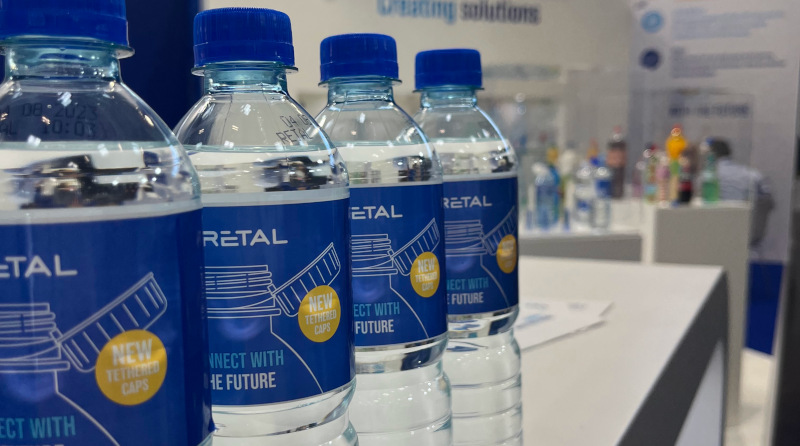Precision drives preform production
Retal invests in new equipment to enhance preform quality
Stricter EU regulations are transforming the plastic packaging sector, prompting manufacturers to adopt more sustainable and efficient practices. Legislation such as the Single Use Plastics Directive (SUPD) and the Packaging and Packaging Waste Regulation (PPWR) is accelerating innovation in materials and production, particularly in preform manufacturing. In response, packaging producer Retal has invested in advanced equipment to support the use of recycled PET and meet evolving industry standards.
A recent addition to Retal’s preform production facilities is a Husky HyPET injection moulding system. Known for its precision and repeatability, the equipment plays a central role in meeting both the quality expectations of brand owners and the technical demands of recycled PET blends, says Retal.
To support the growing use of rPET and virgin PET combinations, the company has also installed advanced gravimetric dosing systems, ensuring accurate resin blends while maintaining product consistency. This is particularly relevant for the development of preforms that must comply with evolving recyclability and recycled content targets. Preform and closure production at Retal is supported by both injection and compression moulding capabilities, allowing the company to offer tailored solutions, with ongoing investments focused on further boosting production efficiency and expanding the product portfolio.
Production Director Dainius Staniulis explains, “To adjust to this new situation, we combine technology with team experience. We detect risks like metal particles in pellets and unstable rPET quality from different suppliers. We also change and unify processes – for example, rethinking how we dry rPET to keep quality stable and reduce power use. We build our own software and algorithms to better separate metals in material, and we register patents for new solutions. These steps help us improve quality and reduce waste, while also growing internal know-how.”
Equipment strategy & development goals
Staniulis explains that the company’s equipment strategy is aligned with its product development goals. Retal has developed preforms such as the 95 g, 8 L 48/40 and the 38 mm 3-start for 6–8 L bottles, which are designed to perform reliably during the blowing process. According to Staniulis, achieving the necessary precision in production requires a combination of appropriate investment and technical experience.
Retal operates ten production sites across Europe and the US, with a shared focus on leveraging investments in personnel and facilities to maintain consistent manufacturing standards. The company applies a range of inspection protocols, certifications, and quality assurance audits to ensure compliance and performance across its product lines, which include preforms, closures, containers, and films.
Sustainability is integrated into the company’s broader strategy. Chief Sustainability Officer Emmanuel Duffaut states that the approach is based on double materiality and aligned with global standards: “We mitigate and control important impacts, risks and opportunities with clear policies and targets, working with globally recognised evaluation framework including EcoVadis, CDP and the UN Global Compact.”
In response to evolving regulations, Retal is also supporting brand owners in transitioning to tethered closures and is developing closure solutions for returnable glass bottles, scheduled for release this year.

